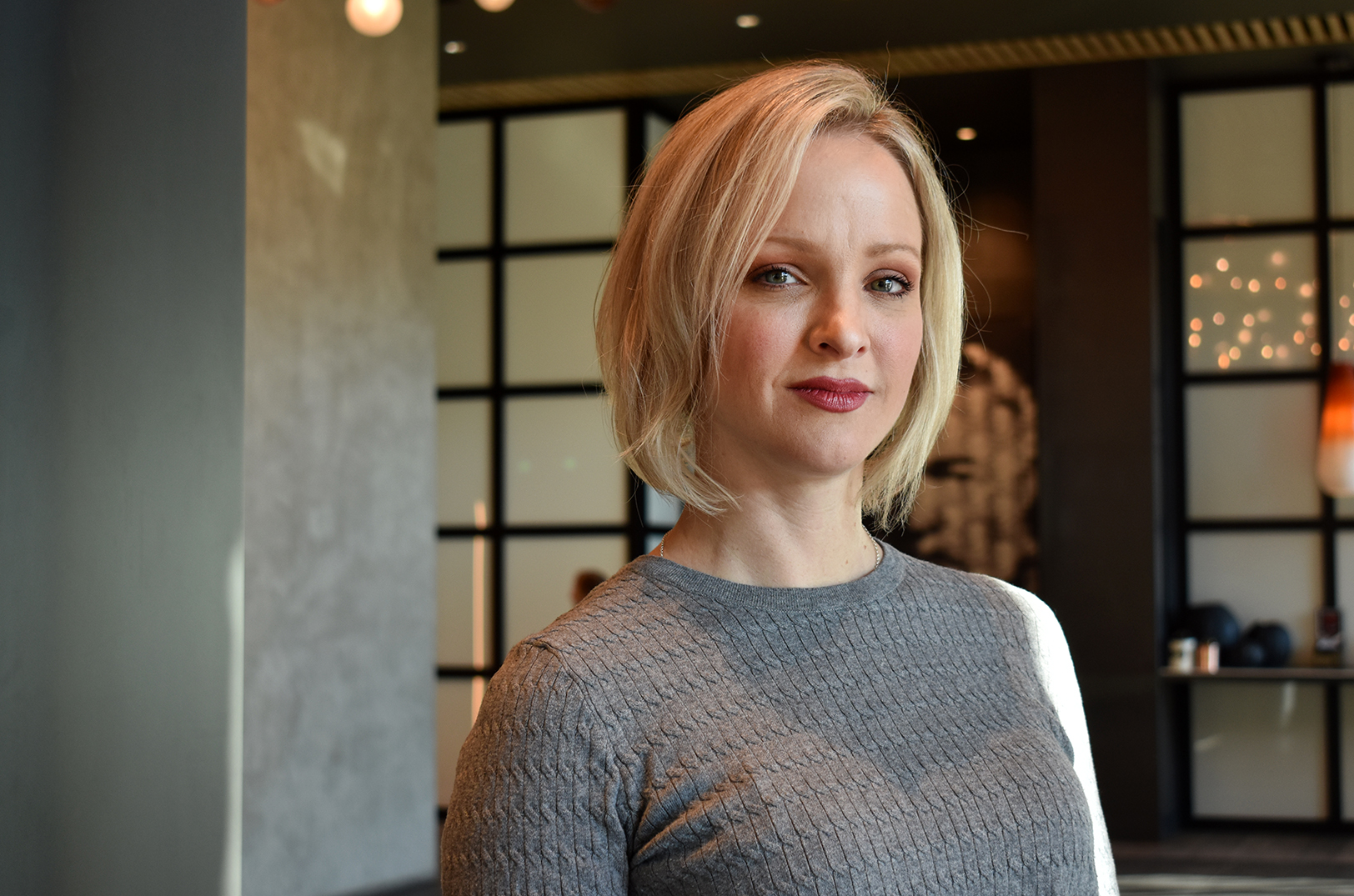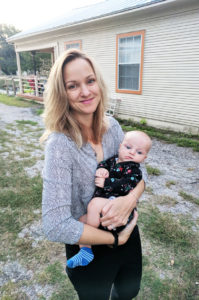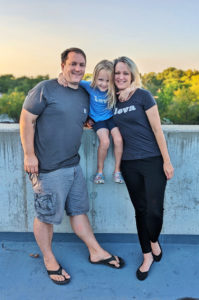Women’s health remains a taboo topic in American culture, said Vanessa Jupe, sharing why the mother-turned-tech founder is on a mission to provoke conversations and provide resources for women — starting with nursing infants.
“Breastfeeding was not at all what I expected it to be. It was a very challenging, confusing time that showed me how much women need and deserve better support. The idea to address this pain point has been with me for over five years now, so I’m very excited to finally share this holistic, supportive app for expecting and new moms,” said Jupe, the founder and CEO of Leva.
Click here to check out Leva.
Leva is an all-inclusive application for tracking breastfeeding, pumping, formula feeding and diaper counts. Its tracking feature allows mothers to select which side they are feeding from and how long the feeding session lasts. While feeding, mothers are given options for mediation sessions, which allows them to relax and in turn scientifically increases milk flow, noted Jupe.
“One of the top things we found that women are looking for is support that they are doing OK,” Jupe siad. “We felt including meditations and mindfulness could help reassure them along the way. … All of our meditations are between five and 13 minutes and specific for either breastfeeding, pumping or sleepy time. We’ve heard great feedback from our beta users.”
Through the app, parents can also follow along with what milestones their babies should reach at certain ages, and what to do if their baby is not hitting those markers. Leva provides on-demand video content developed by experts, as well as the ability to schedule appointments with vetted lactation and other consultations. Its diaper tracker feature can assess consistency and color of stool to give parents an idea of whether or not their baby is feeding well.
Even with Leva’s library of more than 200 science-backed articles, mothers have reported that one of most valuable components is the community of other parents who have gone through or are going through similar experiences, Jupe said.
“When we were first building Leva, creating a community wasn’t the top of mind,” she said. “But almost every person we spoke to, and various articles, discussed the importance of community.”
With the app in its early stages, Jupe is constantly thinking about updates and features she would like to add, she said — noting that user feedback is valued and highly considered.
“We’ve done several surveys on what content Leva should provide, and I was shocked that so much of the feedback I received was around postpartum body changes,” Jupe said. “It’s not something many people talk about, and our culture doesn’t always support women in the right way. So there are a number of topics I’d like to address through Leva.”
Leva operates as a subscription service of $10 a month or $99 a year. It is set to launch in the Apple App Store and Google Play Store in January.
Personal breastfeeding experience
Jupe described herself as a type A, goal-oriented person who found success in planning and achieving her objectives. When it came to having a child, she thought it would be no different.
“I thought he’d nurse perfectly, and everything would happen on schedule — nothing could be further from the truth,” Jupe admitted.
About a week after giving birth, Jupe was told that her son was not gaining enough weight. Jupe scheduled an appointment with a lactation consultant to assess latching and the baby’s mouth.
“[During that appointment], he transferred only about an ounce of liquid — not nearly enough,” Jupe recalled. “So the lactation consultant taught me how to use my breast pump. I would nurse him on both sides, then pump, then feed him the milk from the pumps and then wash everything and start again in an hour or two. It was very intense.”
Over the next weeks, the process became extremely painful for Jupe, and her son was still not gaining weight. A doctor diagnosed Jupe’s son to have tongue and lip ties, or extra skin that can make it challenging to transfer milk. Making the difficult decision to go forward with a procedure that would cut the tissue, Jupe was hopeful to find relief, she shared.
“We did the procedure, and he still wasn’t extracting enough milk,” Jupe said, recalling her intense feelings of self-shame, frustration and despair.
Cultural stigmas can make a mother feel ashamed for turning to formula over breastfeeding, Jupe recognized, remembering how she cried in the formula aisle when first trying to figure out what to get her son. Jupe combo-fed her child for the first year, but she had countless questions she wished could have been answered. Through Leva, she hopes that no other mothers feel left in the dark, she shared.
“Like all of our stories, mine should have a positive ending,” Jupe said, “and while I can’t sugarcoat any part of my breastfeeding journey, I can say that this deep and extended suffering led me to start Leva.”
Click here to read Vanessa Jupe’s full breastfeeding journey.
Motherhood prepares for entrepreneurship
Before becoming a full-time entrepreneur, Jupe climbed the corporate ladder and served as an executive for both corporations and startups. Although management and learning to be resourceful at the office readied her to start her own venture, nothing quite prepared her as much as becoming a mother, she said.
“In the past, I’ve led large teams, and I’ve really loved my teams,” Jupe said. “But when you have a kid, or you have a product that you created, the love is different. You want your child and your idea to be perfect; and you know that they are going to make mistakes, but you will be there every step of the way to help them through it.”
Before and after Jupe’s son was born, she sought out to learn as much as she could about her pregnancy and newborns. In a similar manner, research was key to her feeling comfortable and prepared to be full-time with Leva, she said.
“I’m a bit of an obsessive researcher — I’ve done that with my child, and I’ve done that with my business,” Jupe said.
Jupe’s deeper connection to her work brings along more weight to each decision she makes, she acknowledged, but is also much more rewarding.

Roosevelt and Vanessa Jupe at the Women’s Rights Pioneers Monument in Central Park, Manhattan, New York
Furthering women’s health
Women in the United States are the most likely to die in pregnancy, childbirth and postpartum than women in other high-income, developed countries, according to a 2020 study published in The Commonwealth Fund.
“If you look at countries like the UK or France, we’re double their maternal mortality rate,” Jupe noted. “And 84 percent of those pregnancy-related deaths could have been avoided, but we don’t have a good focus on preventing those deaths in this country. The other thing that’s really scary is suicidality within new moms has increased dramatically. It’s clear there is a crisis.”
Unaddressed topics regarding women’s health go beyond motherhood and breastfeeding as well, Jupe said, listing menopause as another example.
When Jupe envisions the future of Leva, she sees it as a centralized resource that holistically supports women across their life journey, she shared.
“Information needs to be available to support someone who is having a kid at 19 as well as someone who is having a kid at 40,” Jupe said. “I see Leva as helping women who are graduating college and trying to figure out how to pay down student loan debt or how to get that first job. … We need to build a society where we’re all working together, and we’re helping each other thrive to build an incredible life.”









































